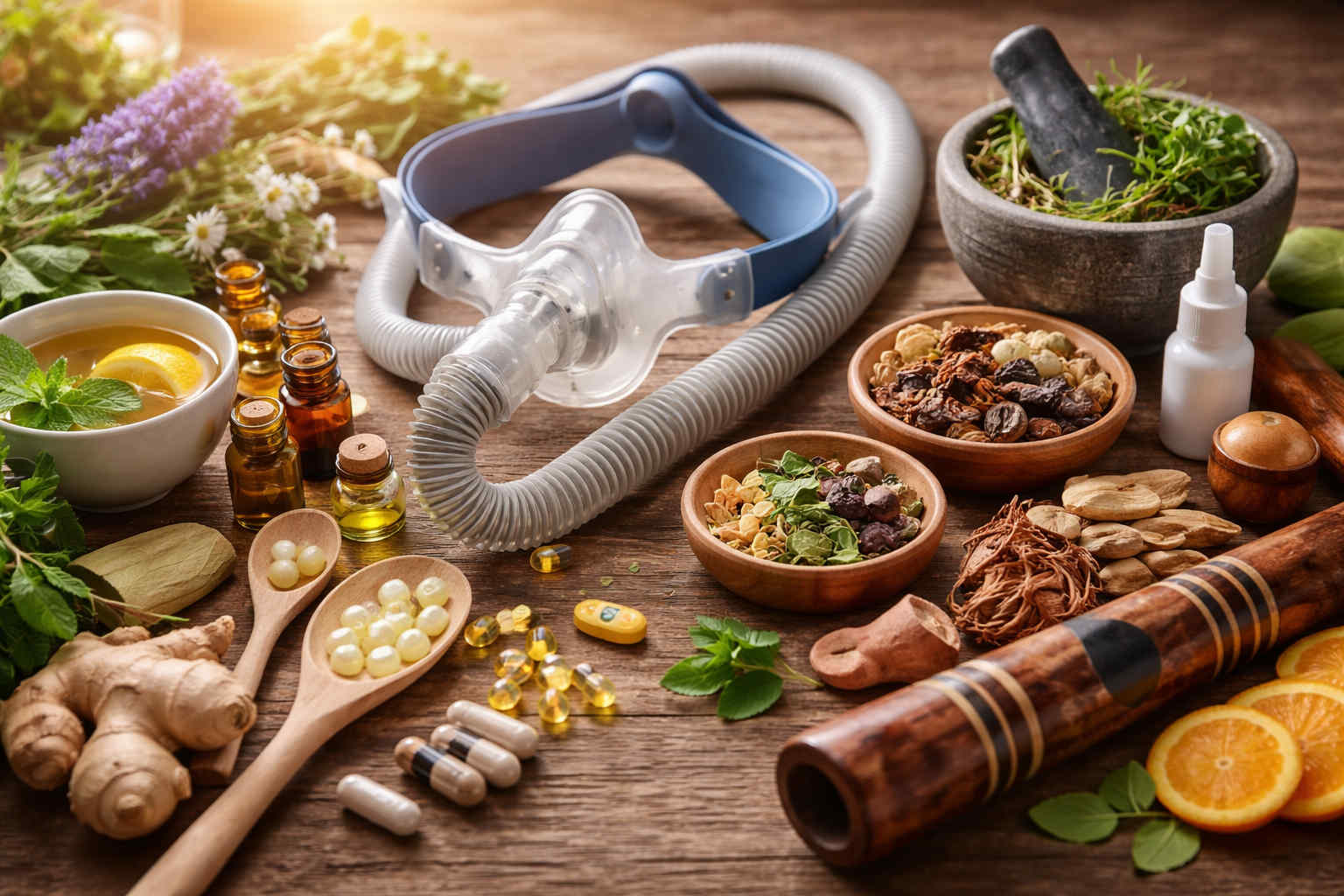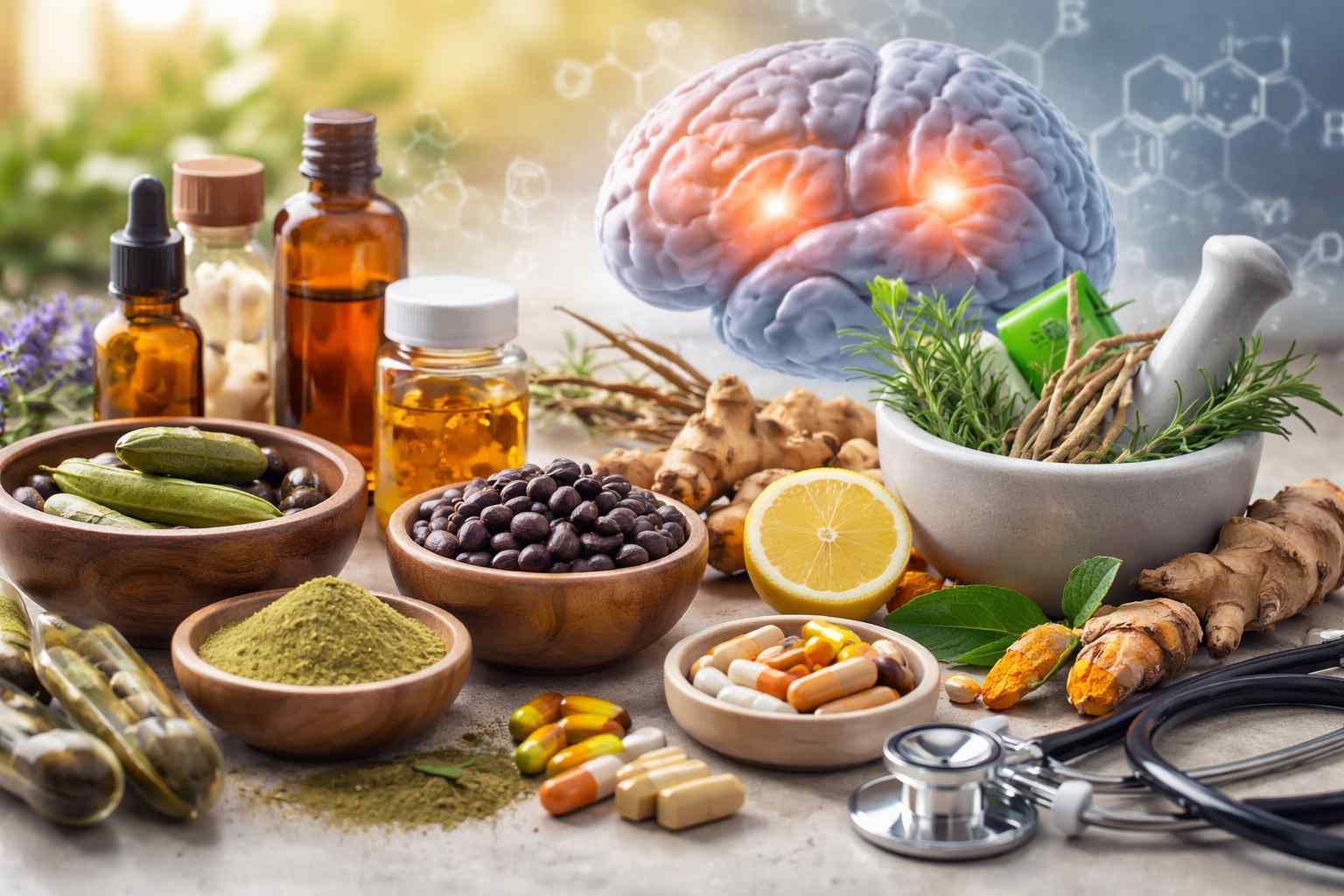Introduction
Lung cancer is one of the most common and most dangerous types of cancer worldwide. It develops when cells in the lungs divide uncontrollably and form tumors. The disease is often only recognized at an advanced stage, as the symptoms are usually inconspicuous at the beginning. This article describes in detail the development, its symptoms and causes as well as possible natural treatment methods. It also shows which medicinal plants and dietary supplements can have a supportive effect to promote the healing.
Development of lung cancer
Lung cancer develops when healthy lung cells are altered by genetic mutations. These mutations cause the cells to divide faster and disrupt the normal growth processes of the tissue. The result is a tumor that can destroy the lung tissue. There are two main types:
- Non-small cell lung cancer (NSCLC): This is the most common form and accounts for around 85-90% of cases. It grows more slowly and has a better prognosis if detected early.
- Small cell lung cancer (SCLC): This form grows faster and spreads to other parts of the body at an early stage. SCLC is more aggressive and more difficult to treat.
The exact cause of the genetic mutations that lead to the development is not always clear. However, certain factors increase the risk of developing cancer.
Causes of lung cancer
The causes are varied and complex. The most important risk factors are:
- Smoking: Tobacco use is the biggest risk factor for lung cancer. Around 85% of cases can be attributed to smoking, as cigarette smoke contains harmful substances such as tar and nicotine, which damage the DNA of cells and promote the development of cancer.
- Passive smoking: Exposure to other people’s cigarette smoke can also increase the risk of developing it.
- Air pollution: Air pollutants, especially particulate matter and chemical vapors, can damage the lungs and increase the risk.
- Occupational exposure: Certain working conditions where people come into contact with asbestos or radon increase the risk of developing it.
- Genetic predisposition: In some cases, a family history of lung cancer may indicate a genetic predisposition.
- History of lung disease: People who have had chronic obstructive pulmonary disease (COPD) or pneumonia have an increased risk of developing it.
Symptoms of lung cancer
Symptoms of lung cancer often only appear in advanced stages. The most common symptoms are
- Cough: persistent, often chronic cough that does not go away can indicate it.
- Blood in the sputum: A cough with bloody sputum may indicate progressive disease.
- Shortness of breath: Shortness of breath or shortness of breath, especially during physical exertion, are common symptoms.
- Chest pain: Pain or a feeling of pressure in the chest may be due to it if the tumor is affecting the surrounding tissue.
- Weight loss and loss of appetite: Involuntary weight loss and loss of appetite are typical symptoms of advanced lung cancer.
- Weakness and fatigue: Those affected often feel exhausted and weak, which can significantly impair their quality of life.
Naturopathic treatment options
Conventional treatment for lung cancer includes surgery, chemotherapy and radiotherapy. However, there are also natural approaches that can support healing or provide relief. These include a variety of medicinal plants, dietary supplements and dietary changes that strengthen the body and support the immune system.
Medicinal plants to support lung cancer
- Echinacea (coneflower): This plant is known for its immune-boosting properties and can help to strengthen the body’s defenses. Echinacea can activate the body’s own defenses, which is particularly important in the case of cancer.
- Astragalus: Astragalus is a plant that supports the body’s defense against cancer by strengthening the immune system and promoting cell regeneration. It is often used as a supplement to chemotherapy to improve the effect of the treatment.
- Ginger: Ginger has anti-inflammatory properties and can help relieve the symptoms of nausea caused by chemotherapy. Ginger also supports the detoxification of the body.
- Green tea: Green tea contains flavonoids and antioxidants that can inhibit the growth of cancer cells and help the body fight free radicals.
- Turmeric root (Curcuma): Curcumin, the active ingredient found in turmeric root, has been shown to have anti-inflammatory and anti-cancer properties. Turmeric can inhibit the growth of cancer cells and promote the healing process.
Dietary supplements for lung cancer
In addition to medicinal plants, there are also numerous dietary supplements that can be helpful in the treatment of lung cancer. These include
- Vitamin D: A deficiency of vitamin D is associated with an increased risk of lung cancer. An adequate supply of this vitamin can improve the chances of recovery.
- Omega-3 fatty acids: These healthy fats, found in fish oil and flaxseed, have anti-inflammatory properties and can boost the immune system.
- Vitamin C: Vitamin C is a powerful antioxidant that can help repair cell damage and support the immune system.
- Selenium: This trace mineral has antioxidant properties and can help the body fight harmful free radicals.
Nutrition
A healthy, balanced diet can play an important role in the treatment of lung cancer. Particularly helpful are:
- Antioxidant-rich foods such as berries, green leafy vegetables and nuts, which protect the body from cell damage.
- Anti-cancer foods such as tomatoes, garlic and cruciferous vegetables (e.g. broccoli, Brussels sprouts), which can inhibit the growth of cancer cells.
- Plenty of fluids: Adequate fluid intake is important to detoxify the body and support lung function.
Conclusion: Curing lung cancer with natural remedies
Lung cancer is a serious disease that in many cases must be treated with conventional medicine. However, support from natural remedies can also promote the healing process. Medicinal plants such as echinacea, astragalus and ginger as well as dietary supplements such as vitamin D and omega-3 fatty acids can help to strengthen the immune system, reduce inflammation and improve bodily functions. A healthy diet rich in antioxidants and anti-cancer foods can also support healing.
However, it is important to always consult a doctor or qualified health practitioner when treating it to ensure that all measures support health and healing.
Sources and further information:
- Mistletoe therapy for cancer
- Dietary supplements for cancer
- Black cumin oil for cancer
- Medicinal plants against cancer
- Vital mushrooms in cancer therapy
- Alternative medicine for cancer
- Complementary medicine for cancer
Published on: 18. January 2025
Related posts
Naturopathy, Treating diseases naturally
Naturopathy, Treating diseases naturally
Naturopathy, Treating diseases naturally





